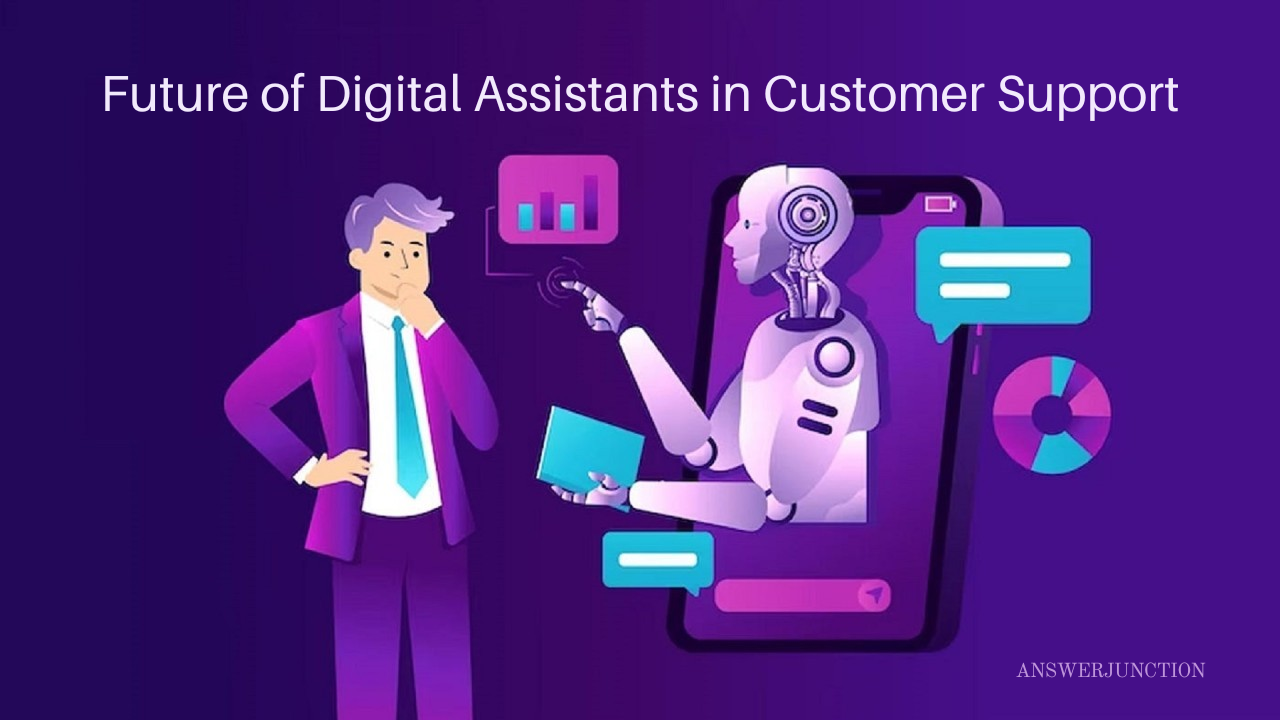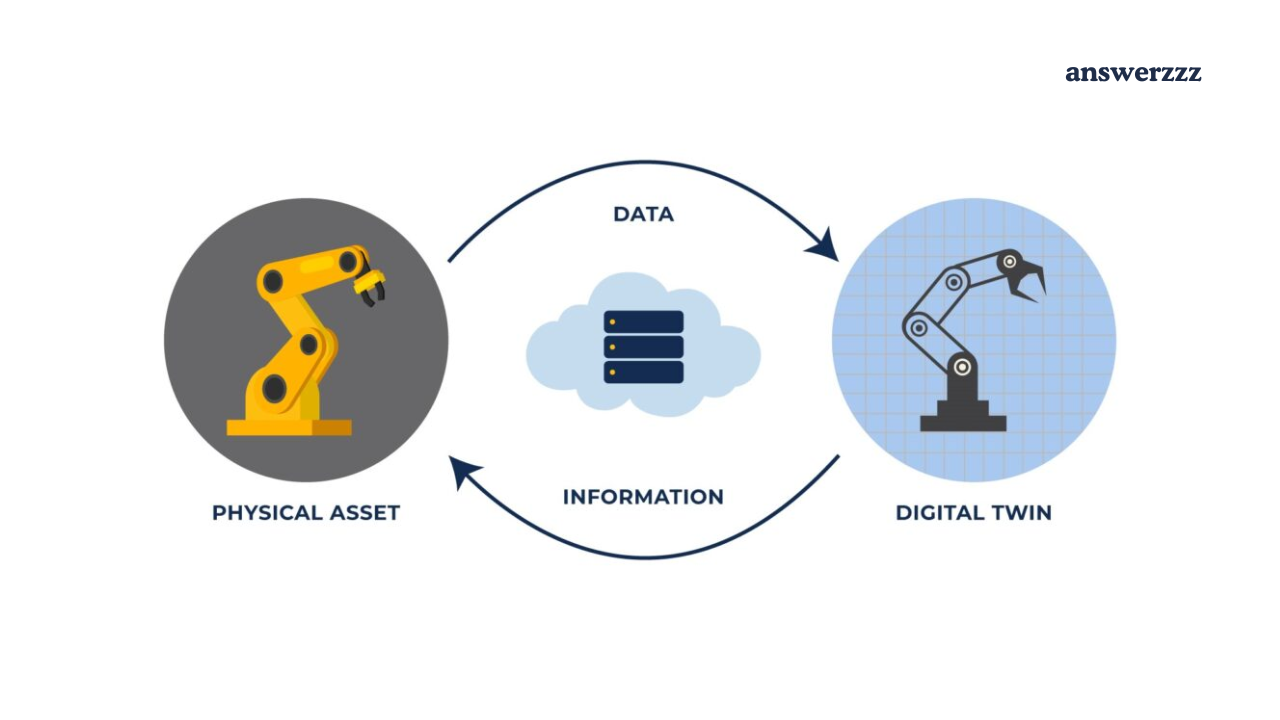In an increasingly digital world, customer support has evolved significantly over the years. One of the most notable advancements is the rise of digital assistants, commonly known as chatbots or virtual agents. These AI-driven solutions have transformed how businesses interact with customers, offering a more efficient, personalized, and scalable approach to service. As we look to the future, the role of digital assistants in customer support is poised to expand even further, driven by advancements in artificial intelligence, machine learning, and natural language processing. This article explores the future of digital assistants in customer support, examining their current capabilities, emerging trends, potential challenges, and the overall impact on businesses and consumers alike.
Current Landscape of Digital Assistants

Digital assistants are already embedded in various customer support scenarios, from handling simple inquiries to resolving complex issues. They operate across multiple channels, including websites, social media platforms, and mobile applications, providing instant responses to customer questions. This omnichannel approach ensures that customers receive consistent support regardless of where they engage with a brand.
The current capabilities of digital assistants are primarily rooted in predefined scripts and basic AI algorithms. They can manage frequently asked questions, process orders, schedule appointments, and even perform basic troubleshooting tasks. This level of automation significantly reduces wait times and frees up human agents to handle more intricate issues that require empathy and critical thinking. Additionally, businesses benefit from reduced operational costs, increased efficiency, and the ability to provide 24/7 support.
Advancements in AI and Machine Learning
As technology continues to advance, the future of digital assistants will be heavily influenced by developments in artificial intelligence and machine learning. The integration of advanced algorithms allows these digital agents to learn from interactions, improving their responses and becoming more adept at understanding customer needs over time. This adaptive learning process enhances their effectiveness, enabling them to provide personalized experiences tailored to individual customer preferences.
Natural language processing (NLP) is another critical area of advancement. NLP technology empowers digital assistants to comprehend and interpret human language more accurately, facilitating smoother and more natural conversations. As these assistants become increasingly conversational, customers will enjoy a more human-like interaction, reducing frustration and enhancing satisfaction. Future digital assistants will not only recognize keywords but also grasp the context and sentiment behind customer inquiries, allowing them to respond more appropriately and empathetically.
The Rise of Hyper-Personalization
The future of customer support will be characterized by hyper-personalization, wherein digital assistants leverage vast amounts of data to create tailored experiences for each customer. By analyzing customer behaviour, preferences, and past interactions, these assistants can predict needs and proactively offer solutions. For instance, if a customer frequently inquires about a particular product, the digital assistant can provide targeted recommendations or alerts for promotions related to that product.
Hyper-personalization extends beyond mere product recommendations; it encompasses the entire customer journey. Future digital assistants will be equipped to guide customers through complex processes, providing step-by-step assistance based on their unique circumstances. This level of personalization fosters a stronger emotional connection between customers and brands, leading to increased loyalty and satisfaction.
Integration with Other Technologies
To maximize their effectiveness, future digital assistants will need to seamlessly integrate with other technologies within an organization’s ecosystem. This includes customer relationship management (CRM) systems, knowledge bases, and data analytics platforms. By accessing real-time customer data and historical interactions, digital assistants can provide more accurate responses and contextual support.
Moreover, the integration of voice recognition technology will play a crucial role in the evolution of digital assistants. Voice-activated assistants like Amazon’s Alexa and Google Assistant have already gained popularity in consumer settings. As businesses begin to adopt similar technologies, customers will be able to engage with digital assistants through voice commands, enhancing convenience and accessibility. This shift toward voice-enabled interactions opens up new possibilities for customer support, particularly for individuals with disabilities or those who prefer hands-free communication.
The Role of Human Agents
While digital assistants will undoubtedly play an increasingly prominent role in customer support, the human touch will remain essential. Complex issues that require empathy, nuanced understanding, or creative problem-solving will still necessitate the intervention of human agents. In the future, the most successful customer support strategies will involve a harmonious collaboration between digital assistants and human agents, each focusing on their strengths.
Digital assistants can handle routine inquiries, allowing human agents to concentrate on high-value interactions. This synergy enhances overall efficiency while ensuring that customers receive the empathetic support they need when faced with challenging issues. Furthermore, as digital assistants learn from human interactions, they can evolve their responses and improve their service quality, resulting in a continuous feedback loop that benefits both customers and businesses.
Addressing Privacy and Security Concerns
As digital assistants become more sophisticated and integrated into customer support, concerns around privacy and security will continue to grow. Customers are increasingly aware of how their data is collected and used, and they expect transparency and accountability from businesses. Companies must prioritize data protection by implementing robust security measures to safeguard customer information.
Future digital assistants will need to adhere to strict data privacy regulations and ethical guidelines. Businesses must communicate their data collection practices and give customers control over their information. This emphasis on privacy will build trust, encouraging customers to engage with digital assistants without hesitation. Transparent practices will also enhance brand reputation, ultimately contributing to customer loyalty.
The Role of IoT in Vehicle-to-Everything (V2X) Communication
Overcoming Challenges
Despite the many advantages digital assistants offer, several challenges must be addressed for their successful integration into customer support. One significant hurdle is the ongoing need for training and refinement. While AI algorithms can learn from data, they require continuous updates and monitoring to ensure accuracy and relevance. Businesses must invest in training their digital assistants to handle a broad range of inquiries while also updating their knowledge bases to reflect changing products, services, and customer expectations.
Another challenge is the potential for miscommunication. While advancements in natural language processing have improved understanding, misunderstandings can still occur. Digital assistants may misinterpret customer intent or fail to grasp the context of an inquiry, leading to frustration. Companies must establish clear protocols for escalating issues that cannot be resolved by digital assistants, ensuring that customers receive timely assistance from human agents when needed.
The Future Customer Experience
The integration of digital assistants into customer support will redefine the customer experience, shifting the focus from reactive to proactive engagement. Future digital assistants will be equipped to anticipate customer needs, providing relevant information before inquiries arise. For example, if a customer frequently interacts with a particular service, the assistant could send reminders or updates related to that service, enhancing the overall experience.
Moreover, the use of predictive analytics will enable businesses to identify patterns and trends in customer behaviour. By analyzing data, organizations can develop targeted marketing strategies and personalized offerings, leading to higher conversion rates and increased customer satisfaction. Digital assistants will play a pivotal role in facilitating this process by gathering insights and providing valuable feedback.
The future of digital assistants in customer support is bright and filled with possibilities. As technology continues to advance, these AI-driven solutions will become more sophisticated, and capable of providing hyper-personalized, seamless, and proactive support. By integrating with other technologies and leveraging data analytics, digital assistants will enhance the overall customer experience, allowing businesses to build stronger relationships with their clientele.
However, as the reliance on digital assistants grows, businesses must address privacy concerns, invest in ongoing training, and maintain the essential human touch in customer support. By fostering a collaborative environment where digital assistants and human agents work together, organizations can create a customer support model that is not only efficient but also empathetic and responsive.

As we move forward, embracing the future of digital assistants will be crucial for businesses looking to stay competitive in an increasingly digital landscape. The synergy between technology and human interaction will ultimately define the success of customer support strategies, ensuring that customers receive the exceptional service they deserve.




